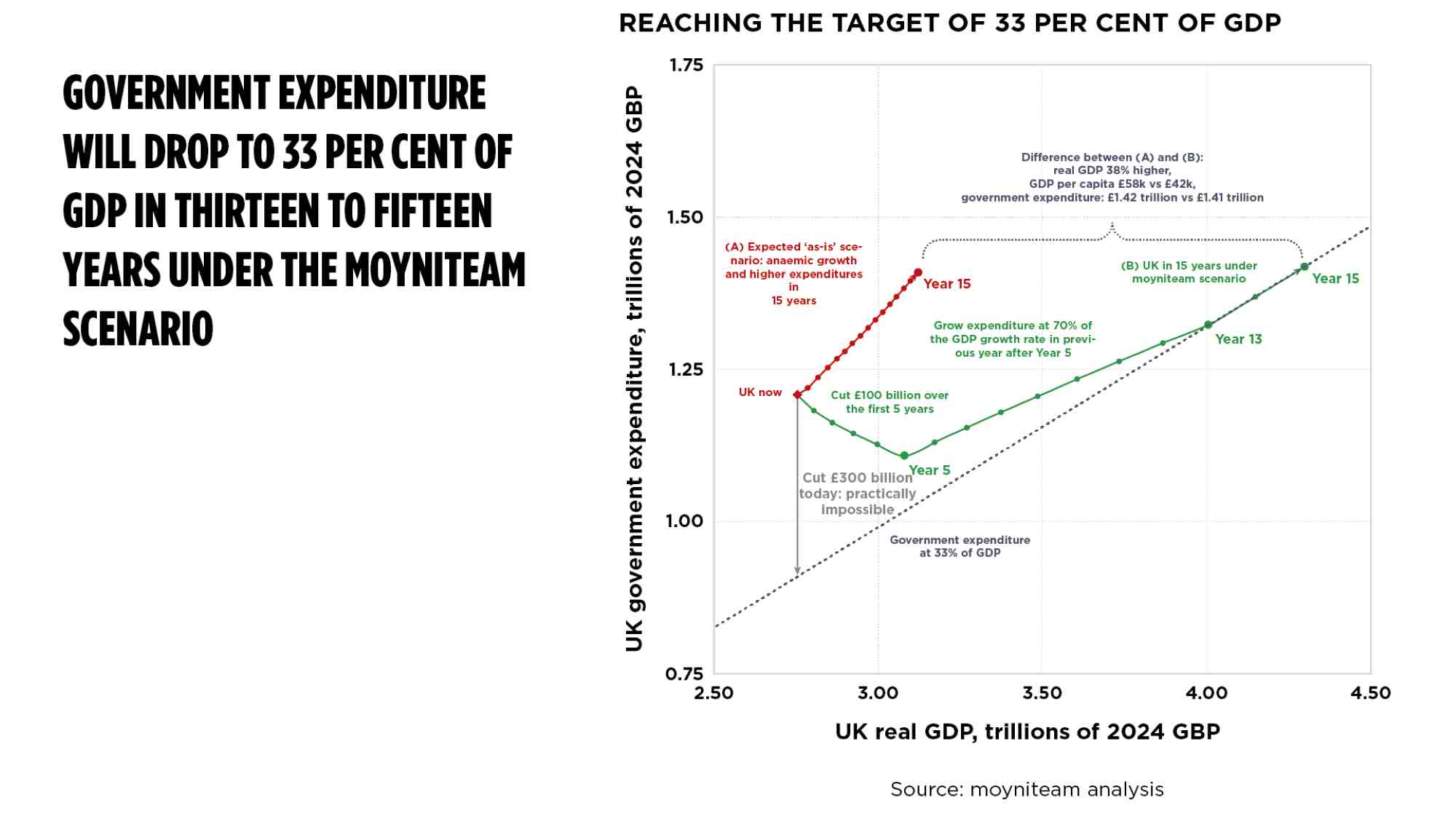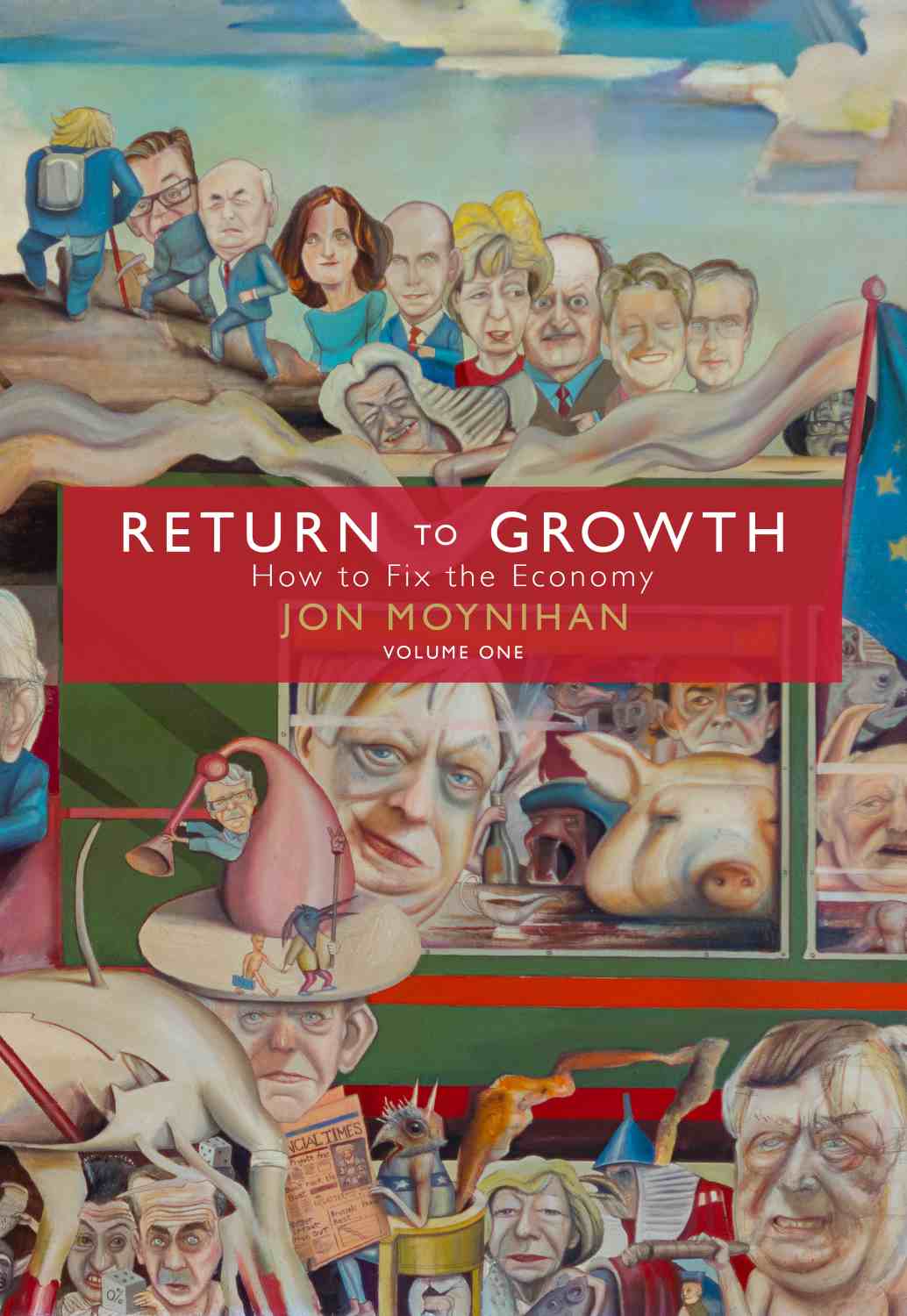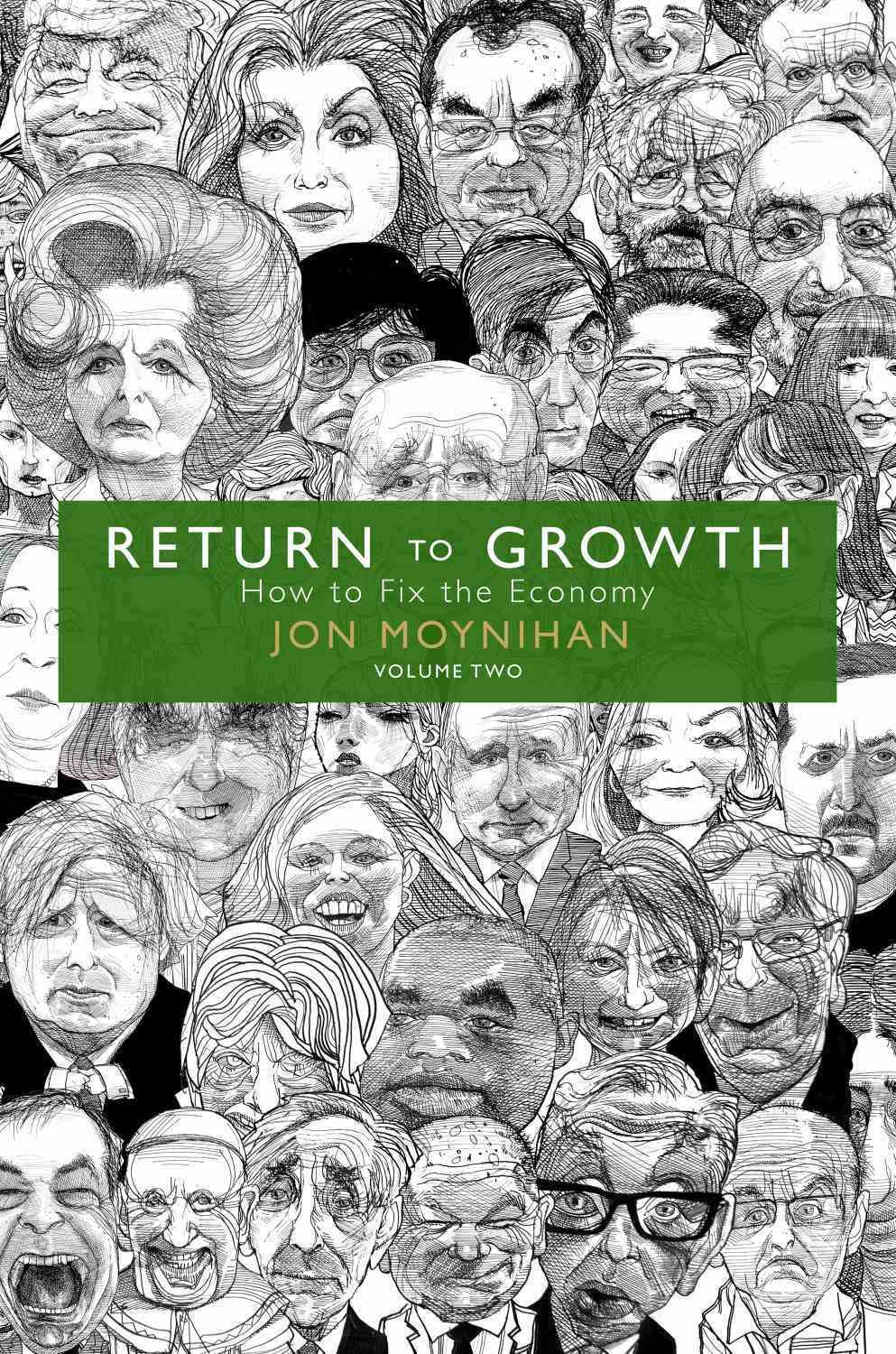'The books I wish I had written': Steve Baker reviews 'Return to Growth'
Image by: Anna Watson / Alamy Stock Photo
5 min read
An intellectually heavyweight yet accessible treatise on how to fix the economy, Lord Moynihan does us a profound service in serving up some unpalatable truths with clear, actionable policy proposals
The first thing you notice about both volumes of Lord Moynihan’s Return to Growth is their weight – literally. Each book’s physical quality is superb, signalling its importance before you open it. The individual book’s intellectual heft and seriousness follow immediately as you begin to read the practical and moral imperatives for growth.
And read them you certainly should. Each book is not merely a meticulous account of the ferocious fires engulfing the burning platform on which we stand: it is a detailed roadmap to the sunlit uplands depicted on its cover.
With characteristic attention to detail, Moynihan reminds readers immediately that he is not an economist. That fact is to his advantage. Unlike the practitioners of conventional economics – that dismal science so often mired in narrow perspectives, methodological errors, and intellectual blind spots – Moynihan’s analysis consolidates a robust range of contributions into a cohesive whole. The clarity of his thought cuts through decades of confusion, complacency and wishful thinking, presenting the full horror of our economic position together with short-term to 15-year solutions of striking practicality and urgency.

The books’ structure is exemplary. Moynihan makes bold assertions, supports them with detailed evidence and then offers clear, actionable policy proposals. It is an approach too rarely adopted in contemporary discourse, where complexity and equivocation often obscure the path forward. This format makes each book’s complicated subject matter accessible, whether you are reading it thoroughly or dipping in for key arguments and recommendations. It invites engagement by both telling a compelling story and providing a structure fit for reference: identify the points you might challenge and follow the author’s logic to the policies he advocates – and you should be persuaded.
Rachel Reeves would be remiss not to read it. I suspect Kemi Badenoch already has
Early on in reading, if you did not know already, you will come to understand the scale of the crisis we face, which is even now crystallising. We simply cannot afford the promises made by politicians to successive generations. Moynihan abruptly confronts stark truths: the UK is heading towards national bankruptcy. This is no abstract warning. Trillions of pounds of unfunded state and public sector pension entitlements will be unpayable: those pension obligations alone threaten to ruin us unless we dramatically change course. Such measures will, inevitably, be unpalatable to the electorate – and Moynihan does not avoid that truth either.

Moynihan is radically critical of the civil service, and on good evidence too. However my sympathy for civil servants remains. The system has been designed to function despite ministers who are often uninterested or incompetent – a point I have tested in my dealings with some of the most senior officials. The fault lies less with the machinery of government, much as it does need reform, and more with those who ought to have directed it with greater resolve and skill.
I have two complaints about Return to Growth. First, I am jealous. I wish I had written it. I doubt I ever had the capacity to elaborate my more modest writing to this extent and, in any case, I spent far too much time delivering leaflets to write something of this quality. I make this point not to flatter myself but to insist that it is not surprising the intellectual leadership of the free-market right is today coming decisively from the House of Lords, not the Commons. Absent mass party membership to make the case for their elected representatives online and door-to-door, those representatives spend their time nursing marginal votes across the line, not thinking.
 Second, the books’ many excellent charts, graphs, and diagrams are frustratingly small. They would have benefited from full-page, landscape orientation. These visuals deserve greater prominence, given how effectively they underscore Moynihan’s arguments, so I hope further editions enable geeks like me to study the fine print more easily.
Second, the books’ many excellent charts, graphs, and diagrams are frustratingly small. They would have benefited from full-page, landscape orientation. These visuals deserve greater prominence, given how effectively they underscore Moynihan’s arguments, so I hope further editions enable geeks like me to study the fine print more easily.
Moynihan establishes the conditions for change in his epilogue in volume two – widespread acceptance of the severity of the situation and its causes – whilst criticising the inadequacies of every political party. He looks for a leader who can communicate our predicament and secure a mandate for the difficult policy required. This book is an essential call to both leadership and courage. Leaders are now without excuse for misunderstanding their task or failing to know how to set about it.
 With Moynihan, I hope Kemi Badenoch will prove more able to implement the necessary programme than her predecessors: goodness knows it is today, and will increasingly be, more obvious than ever that the UK must be driven to the free market right. Uncomfortable as they may make us, Javier Milei and Donald Trump look likely to be pathfinders. As they succeed, so the obstacles diminish.
With Moynihan, I hope Kemi Badenoch will prove more able to implement the necessary programme than her predecessors: goodness knows it is today, and will increasingly be, more obvious than ever that the UK must be driven to the free market right. Uncomfortable as they may make us, Javier Milei and Donald Trump look likely to be pathfinders. As they succeed, so the obstacles diminish.
Each volume is a profound service to the cause of national renewal: not only a diagnosis of our current ailments but also a prescription to avoid future disaster. Rachel Reeves would be remiss not to read it. I suspect Kemi Badenoch already has. I commend it to you.
Steve Baker is former Conservative MP for Wycombe
Return to Growth: How to Fix the Economy: Volumes One & Two
By: Jon Moynihan
Publisher: Biteback
